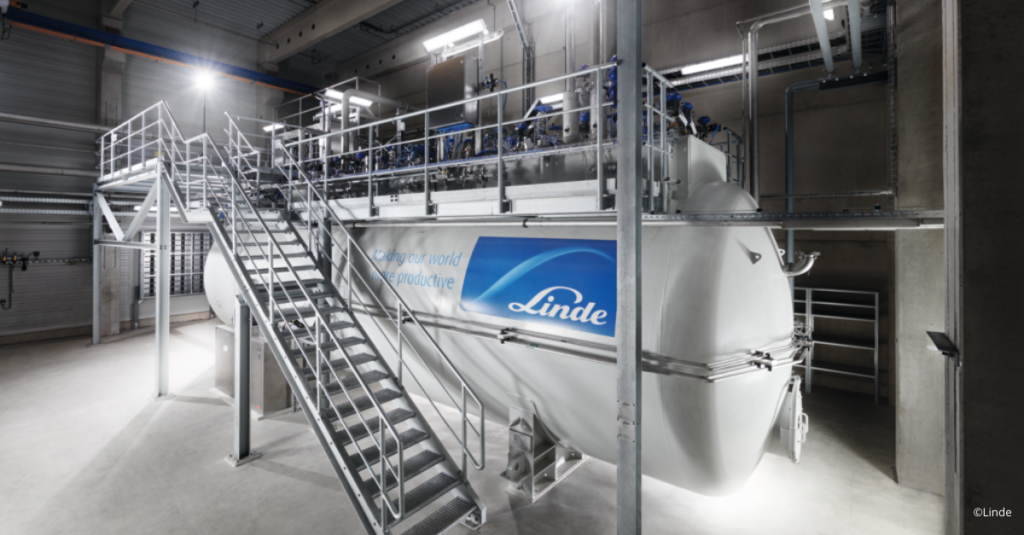- The Institute of Plant and Process Technology, part of the leading Technical University of Munich (TUM), brings cutting-edge expertise in hydrogen process modelling to ALRIGH2T.
The ALRIGH2T project has brought together a multidisciplinary consortium recognized as key players in the civil aviation sector, united by a common goal: to develop and test innovative technologies and processes for refuelling liquid hydrogen aircraft in real airport conditions in Paris and Milan. To achieve this ambitious goal, the Technical University of Munich (TUM) is actively participating in ALRIGH2T, with direct involvement from experts at its Institute of Plant and Process Technology. Their research focuses on process design, equipment design, and modelling of process engineering systems, which will be applied throughout the project’s four-year duration.
Hydrogen process modelling research at TUM
TUM is one of Europe’s leading technical universities, renowned for its strong emphasis on research and innovation. Consistently ranking among the top global universities and a member of the prestigious TU9 alliance of leading German technical universities, TUM plays a pivotal role in the ALRIGH2T project, particularly in the critical area of hydrogen process modelling.
In the context of the project, TUM is represented by its Institute of Plant and Process Technology, led by Prof. Dr.-Ing. Harald Klein. It brings together a team of experts in chemical engineering, mechanical engineering, and chemistry, who are crucial to advancing the goals of ALRIGH2T. The Institute boasts extensive expertise in hydrogen technology and is actively involved in various research initiatives focused on hydrogen, including its production, distribution, utilization, and refuelling systems.
Key contributions: Hydrogen loading and direct refuelling innovation
Within ALRIGH2T, TUM is involved in two key Work Packages: Supply and Accelerated Loading of Liquid Hydrogen and Direct Refuelling Technology. TUM leads the dynamic modelling of liquid hydrogen loading and off-loading processes, aiming to understand and optimize these processes better. For the Direct Refuelling system, the models developed by our partner support creating a digital twin for the refuelling system. These efforts align with the project’s main goals: enabling the safe and rapid loading of airplanes with liquid hydrogen and developing a digital twin for the refuelling system.
In the first six months, significant progress has been made. The Institute of Plant and Process Technology has focused on modeling liquid hydrogen piping systems and the cooling of cryogenic pipes. Moreover, models for a liquid hydrogen pump and the airplane tank are also in development.
To successfully progress on the development of the work packages, the primary challenge is to accurately describe the complex thermodynamic processes during the dynamic filling of a tank with liquid hydrogen using a pump. Suitable models are required to investigate and optimize these processes. TUM researcher Fabian Primke emphasizes:
“Learnings from the simulation results can be used in the design, demonstration, and analysis of the liquid hydrogen refuelling system and thus contribute to the overarching goals of the ALRIGH2T project”.
Strategic collaborations in hydrogen research
TUM’s extensive experience in European and national research projects positions it as a strategic partner for the success of ALRIGH2T. At the European level, the Institute’s team contributed to the COGNIPLANT project, where they provided their expertise in process modelling. Over the four-year duration of the project their aim was to advance the digitalization of the process industry by developing new methods for analysing and optimizing process systems.
Nationally, they are involved in several hydrogen-focused research projects that cover the entire value chain from production to utilization. Various TUM institutes are engaged in research on electrolysis, fuel cell development, hydrogen transport and storage, and Power-to-X processes.
Moreover, the Institute of Plant and Process Technology is participating in several German government-funded projects aimed at developing different aspects of a future hydrogen economy. This in-depth knowledge of hydrogen system modeling, including refueling infrastructure, is being adeptly leveraged in ALRIGH2T to reduce the environmental impact of the aviation sector.



